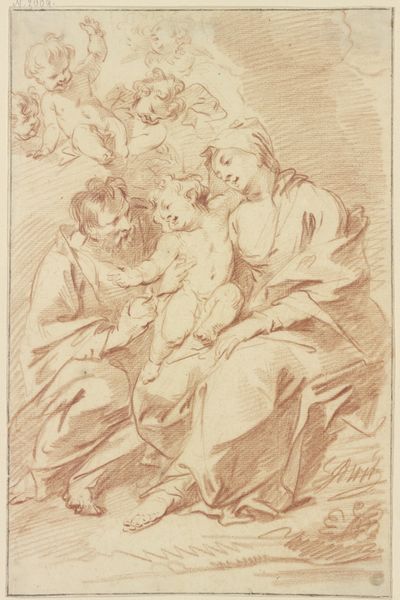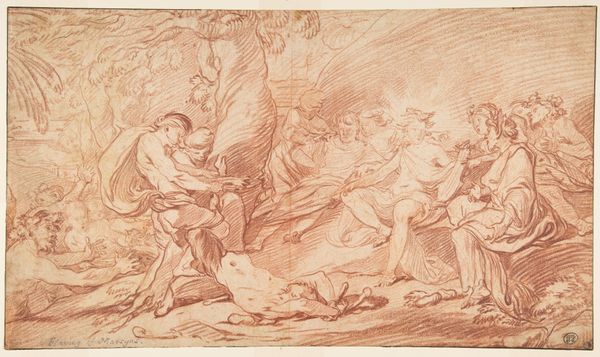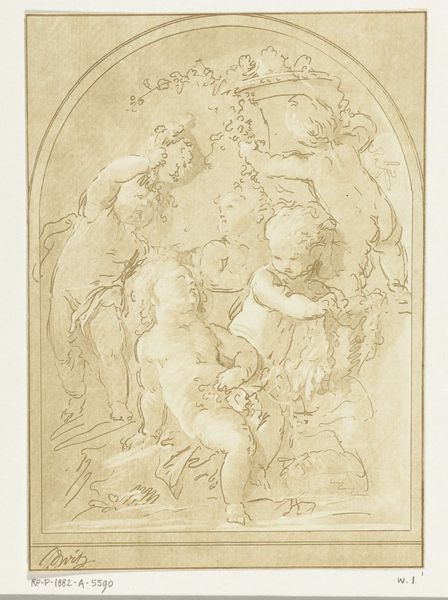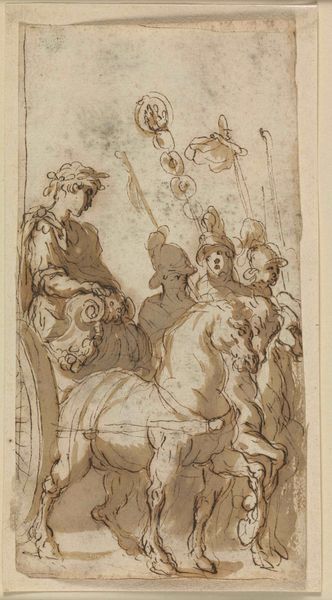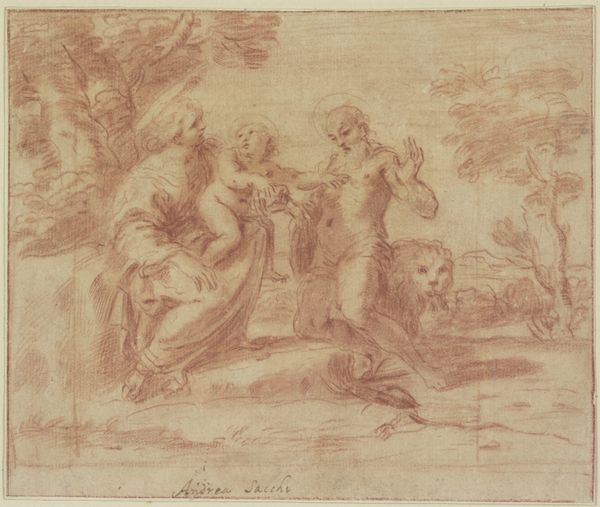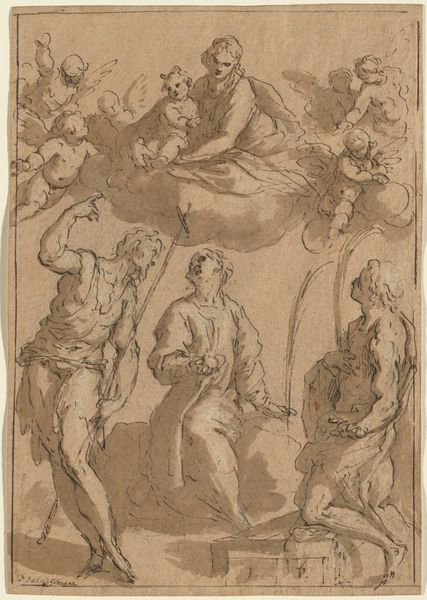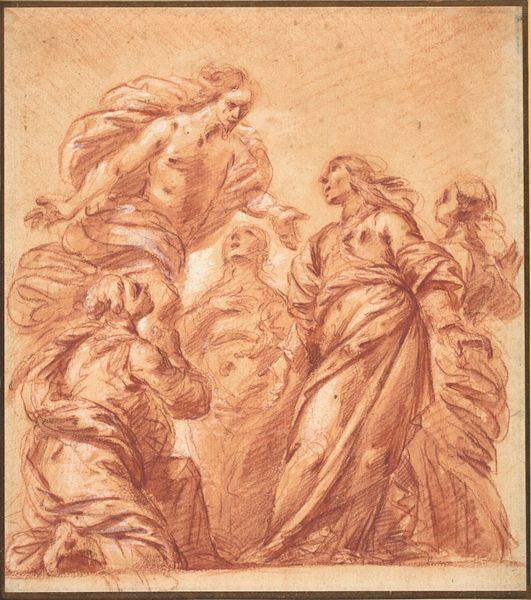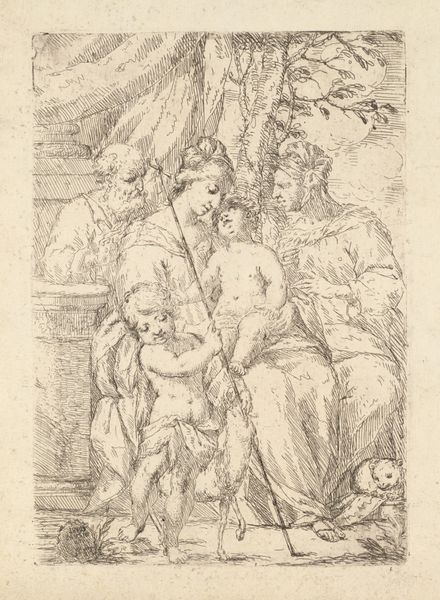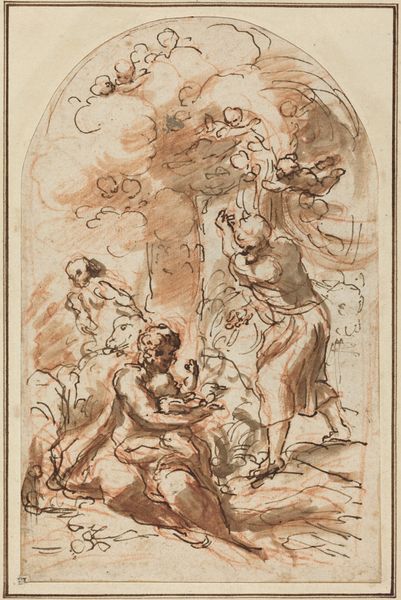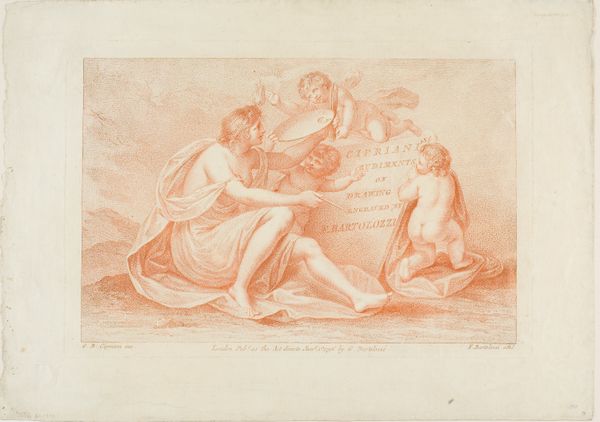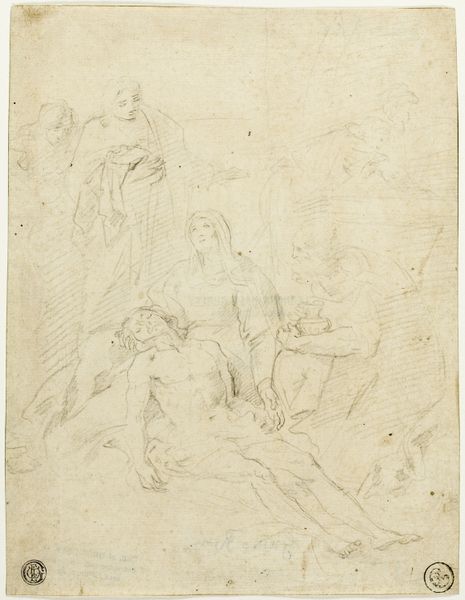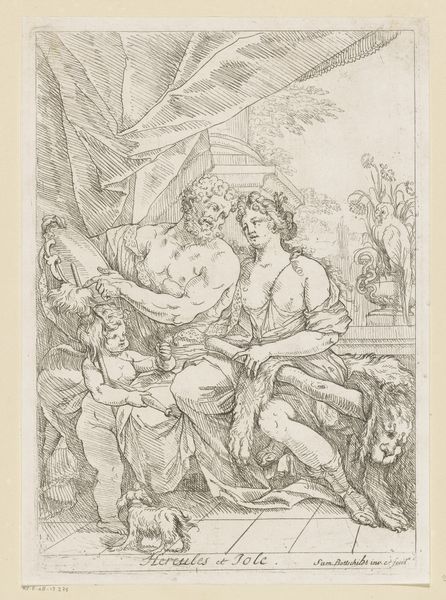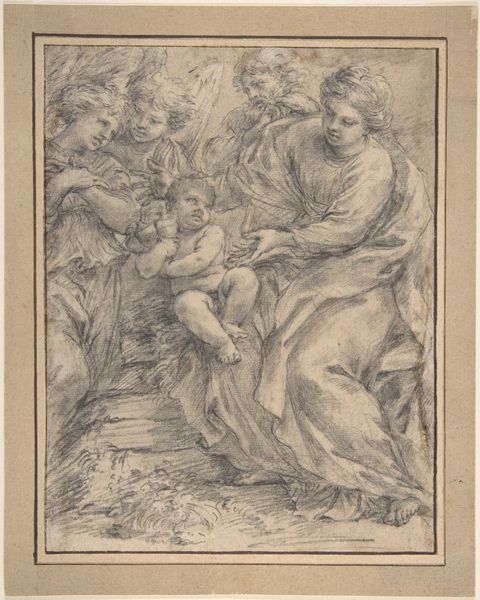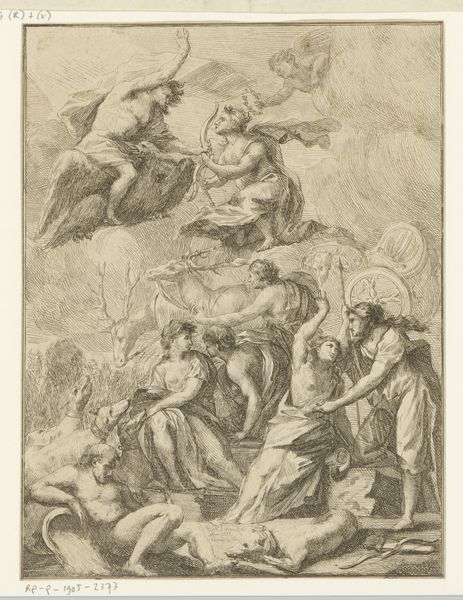
Allegorical Figure of Summer Flanked by Pomona and Ceres c. 1630
0:00
0:00
drawing, print, etching, paper, chalk
#
portrait
#
drawing
#
allegory
#
baroque
# print
#
etching
#
etching
#
figuration
#
paper
#
chalk
#
academic-art
Dimensions: 134 × 150 mm
Copyright: Public Domain
Editor: This is Pierre Brebiette's "Allegorical Figure of Summer Flanked by Pomona and Ceres," created around 1630. It’s rendered in chalk and etching on paper. It has a warm, almost sanguine feel because of the reddish-brown chalk. What do you see in this piece? Curator: I see a commentary on the power structures embedded in seemingly simple allegories. Brebiette uses the female form to represent abstract concepts like Summer, abundance (Pomona), and agriculture (Ceres). Consider how these concepts are gendered. Are they inherently feminine, or has society constructed them as such to reinforce patriarchal ideals? Editor: That’s interesting, I hadn't thought about it that way. So, by personifying these concepts as women, Brebiette is... Curator: Potentially participating in the construction of a social order. The figures themselves, their idealized forms, their passivity... They represent a very specific, controlled vision of femininity. Notice how their gazes avoid ours. Who benefits from this representation? Editor: It makes me wonder about Brebiette's own positionality and what role his social environment had in shaping how and what he drew. Were there contemporary debates about women he may have been reacting to? Curator: Precisely! Researching the debates around women’s roles in 17th-century France will contextualize this drawing. We should consider it within broader artistic and social trends, such as courtly love, and rising proto-feminist thought. Editor: So, this isn't just a pleasant drawing, it’s an artifact loaded with cultural assumptions and potentially, unconscious biases of its time. I never would have considered those contexts without your input! Curator: Absolutely. Art provides insight to these historical perspectives and invites us to reflect critically on these enduring societal structures.
Comments
No comments
Be the first to comment and join the conversation on the ultimate creative platform.
